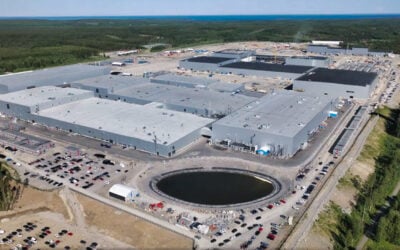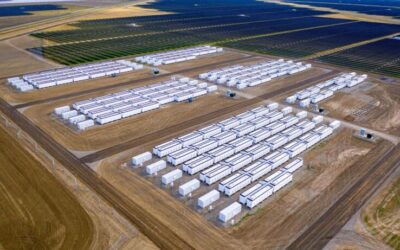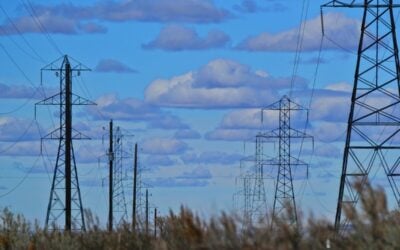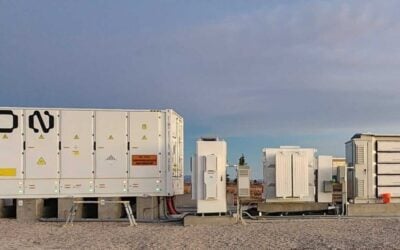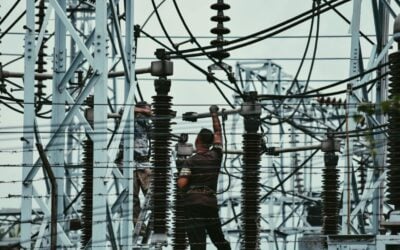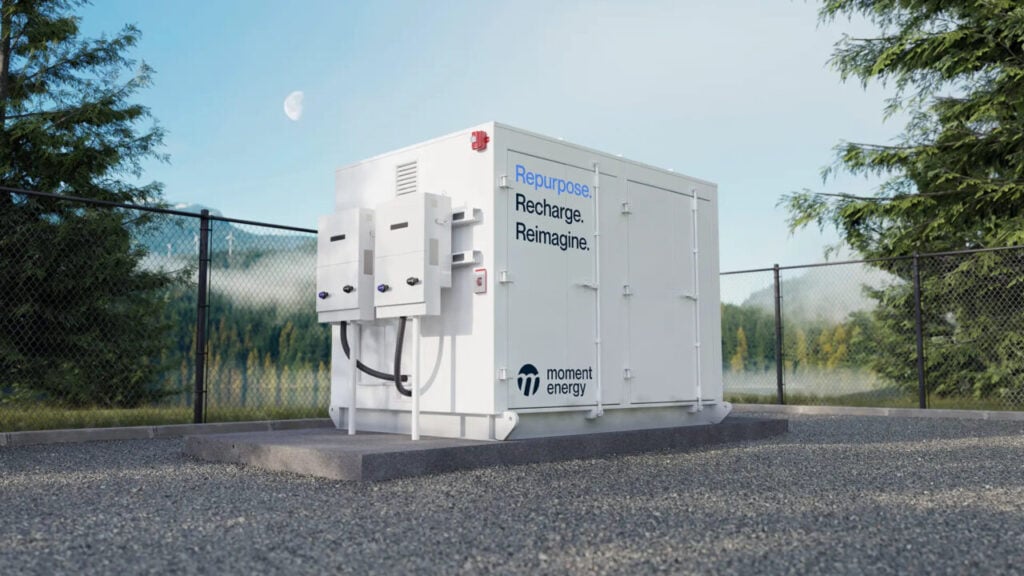
Moment Energy’s second-life battery energy storage system (BESS) manufacturing hub in Vancouver, British Columbia, Canada, has reached full-scale production.
The facility produces Moment’s Luna BESS, a 400kWh/1MWh unit that can be scaled into 10MWh that uses repurposed second-life electric vehicle (EV) batteries. The company says it will deliver 5.6GWh across North America.
Speaking with Energy-Storage.news, Edward Chiang, Co-Founder and CEO of Moment Energy said of how Moment acquires its cells:
“We work directly with automotive companies to source batteries from surplus inventory and end-of-life vehicle stock. Moment currently has access to over 8GWh of supply and will continue to draw from the hundreds of gigawatt-hours that are expected to become available in the next few years.”
Try Premium for just $1
- Full premium access for the first month at only $1
- Converts to an annual rate after 30 days unless cancelled
- Cancel anytime during the trial period
Premium Benefits
- Expert industry analysis and interviews
- Digital access to PV Tech Power journal
- Exclusive event discounts
Or get the full Premium subscription right away
Or continue reading this article for free
Aimed at the commercial and industrial (C&I) market, the Luna BESS has a 2-hour discharge duration and can be used for peak shaving, EV charging support, load shifting, arbitrage, renewable integration or backup power.
The second-life system stores energy during off-peak times and releases it during peak demand, reducing demand charges by as much as 50%. Additionally, it helps prevent outages and decreases dependence on diesel-powered backups.
Chiang said, “The Luna BESS is our answer to the critical energy challenges facing commercial and industrial businesses today. It is an outdoor-rated, AC-coupled energy storage system built with repurposed EV batteries.”
The Luna BESS also supplies power to operations such as AI-driven data centres, hospitals, airports, food-processing lines, concrete plants and the farming industry. Chiang highlighted its ability to be combined with other Luna BESS up to 10MWh storage capacity.
Moment is also receiving help from BC Hydro’s Energy Storage Incentive programme. “The BC Hydro Energy Storage Incentive programme is a significant market accelerant. By offering substantial financial incentives that cover 80% to 90% of total project costs, the programme enables faster adoption of battery energy storage systems (BESS).”
Chiang continued, “This allows us to deploy our technology at a greater scale and demonstrates the economic viability of our energy storage technology, creating a blueprint for similar programmes across North America.”
In 2024, Moment was awarded US$20.3 million by the US Department of Energy to ‘establish the first UL1974 Certified manufacturing facility in the United States dedicated to repurposing EV batteries.’
The funding was to be used for a gigafactory in Taylor, Texas, which, once fully operational, would have a planned annual production capacity of 1GWh.
Chiang says the Taylor factory is still being planned and will “play a crucial role in boosting US production of BESS.”
Multiple factors influenced the decision to open a second-life BESS manufacturing hub in Vancouver. As Chiang explained:
“Vancouver offers a powerful convergence of factors: a world-class talent pool from universities like SFU and UBC; a progressive policy environment that champions the circular economy; and access to clean, affordable power that minimises our operational costs and carbon footprint.”
“As one of North America’s cleanest grids, abundant and low-cost hydroelectric power provided by BC Hydro became a massive advantage to our energy-intensive manufacturing and battery testing processes.”
In 2023, Moment was awarded the UL 1974 certification from UL Solutions, the global safety standards science body.
Earlier this year, the Amazon Climate Pledge Fund participated in a Series A funding round for Moment.
The US$15 million funding round was spearheaded by Amazon’s climate technology division and Voyager Ventures.
Chiang says of the Vancouver hub:
“As our production scales to meet our ambitious global targets, we are strategically expanding our footprint to serve key markets more effectively. Our manufacturing hubs in Vancouver and, soon, the US, serve as a launchpad for our global vision and are critical to our goals of repurposing batteries across both facilities and deploying them worldwide.”
This story has been updated since publication to accurately reflect the capacity of the Luna BESS.

